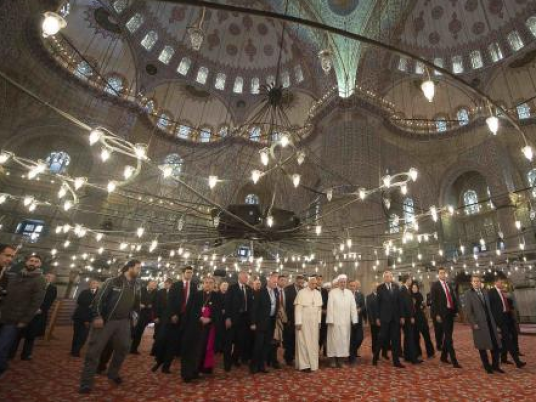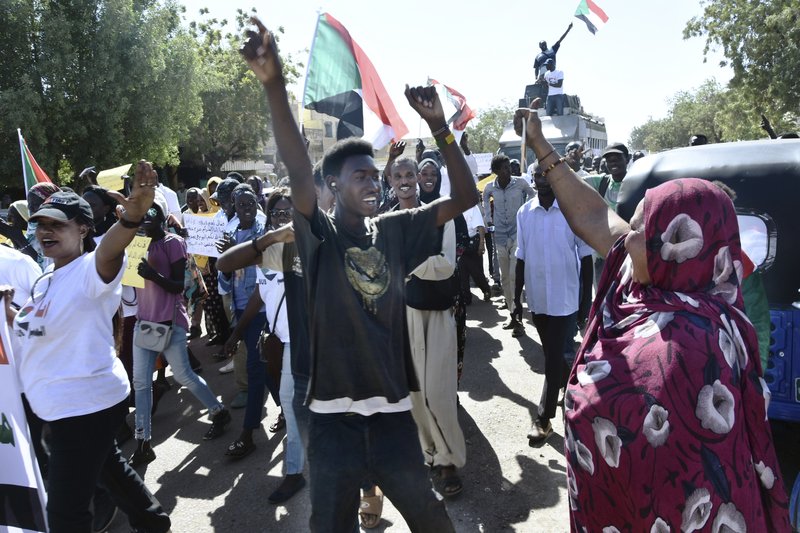
Christians, whose fate will be broached by Pope Francis on his visit to Turkey, have been rooted in the wider Middle East since their faith was born in ancient Palestine two millennia ago.
A minority in all the countries they inhabit in the troubled region, they have been hounded, even killed, by Islamists in recent years. Hundreds of thousands have been displaced at home or fled into exile, either to neighbouring countries, or further afield.
Here is a breakdown of the situation faced by Christians, who practise widely varying rites, in key parts of the region:
Iraq
A community under threat, hundreds of thousands of Iraq's Christians have fled the country over the past decade.
Before the US-led invasion in 2003, Iraq was home to more than a million Christians, with more than 600,000 in Baghdad.
After the invasion, the country became a battleground between insurgents and foreign troops before plunging into sectarian war. The Christian community, identified with Western Crusaders from the early Middle Ages, came under attack by radical Muslims on numerous occasions.
In July, thousands of Christians fled second city Mosul, seized by gunmen from the Islamic State group, after an ultimatum to convert to Islam, pay jizya (protection money) or leave on pain of death.
Iraq's biggest Christian city, Qaraqosh, and dozens of villages were later emptied of their Christian inhabitants.
Syria
In Syria, which has been devastated by nearly four years of civil war, Christians represent between five and nine percent of the population of more than 22 million inhabitants.
The conflict, which has killed more than 195,000 since March 2011, started as a popular revolt against ruler Bashar al-Assad. It gained in complexity with the arrival of jihadists, who seized swathes of the country, later entering into bloody confrontation with former rebel allies.
Syria's Christians have, for the most part, sought neutrality throughout the conflict, and viewed the rise of jihadists with concern. As a result, many have taken Assad's side.
Churches have been damaged or destroyed in the conflict and several Christians, including senior clergy, abducted and even murdered.
Egypt
Coptic Orthodox are the largest Christian group in the Middle East and represent an estimated 10 percent of the 85 million population.
They have long been the target of discrimination and even deadly violence, which took on serious dimensions in 2013. Dozens of churches and church properties belonging to various denominations were attacked, and some people killed, in response to perceived Coptic support for the ouster of Islamist president Mohamed Morsi.
Lebanon
Christians constitute a large minority in tiny Lebanon, which has a Christian president under a power-sharing arrangement with other faiths.
Christians were once the dominant political force in the country, but their power has eroded over the years with the growth in the number of Muslims.
The Vatican-affiliated Maronites, from whom the president is chosen and who are indigenous to Syria and Lebanon, are the largest denomination. They are followed by the Greek Orthodox.
Israel and the Palestinian Territories
There are around 160,000 Israeli Christians, the vast majority of them Arabs, representing about two percent of the population.
In the occupied West Bank and Jerusalem, there are nearly 50,000 Christians, heirs to the first Christians, mainly based in Bethlehem and Ramallah. However, there are only 8,000 Christians in Jerusalem, compared with 30,000 before the creation of the Jewish state of Israel in 1948.
In the Gaza Strip the number of Christians, mostly Greek Orthodox, is a tiny 1,500 out of a population of 1.8 million.
Iran
The Iranian constitution recognises the rights of some religious minorities, including Christians, but apostasy is punishable by the death penalty under Islamic law.
Saudi Arabia
The kingdom, which applies Wahabism, a strict Sunni version of Islam, does not permit the building of churches or the practise of the Christian faith, despite the presence of several million Christian workers, mostly Asian.
Turkey
The 99 percent Muslim state, led by conservative Islamists, is home to only 80,000 Christians.


